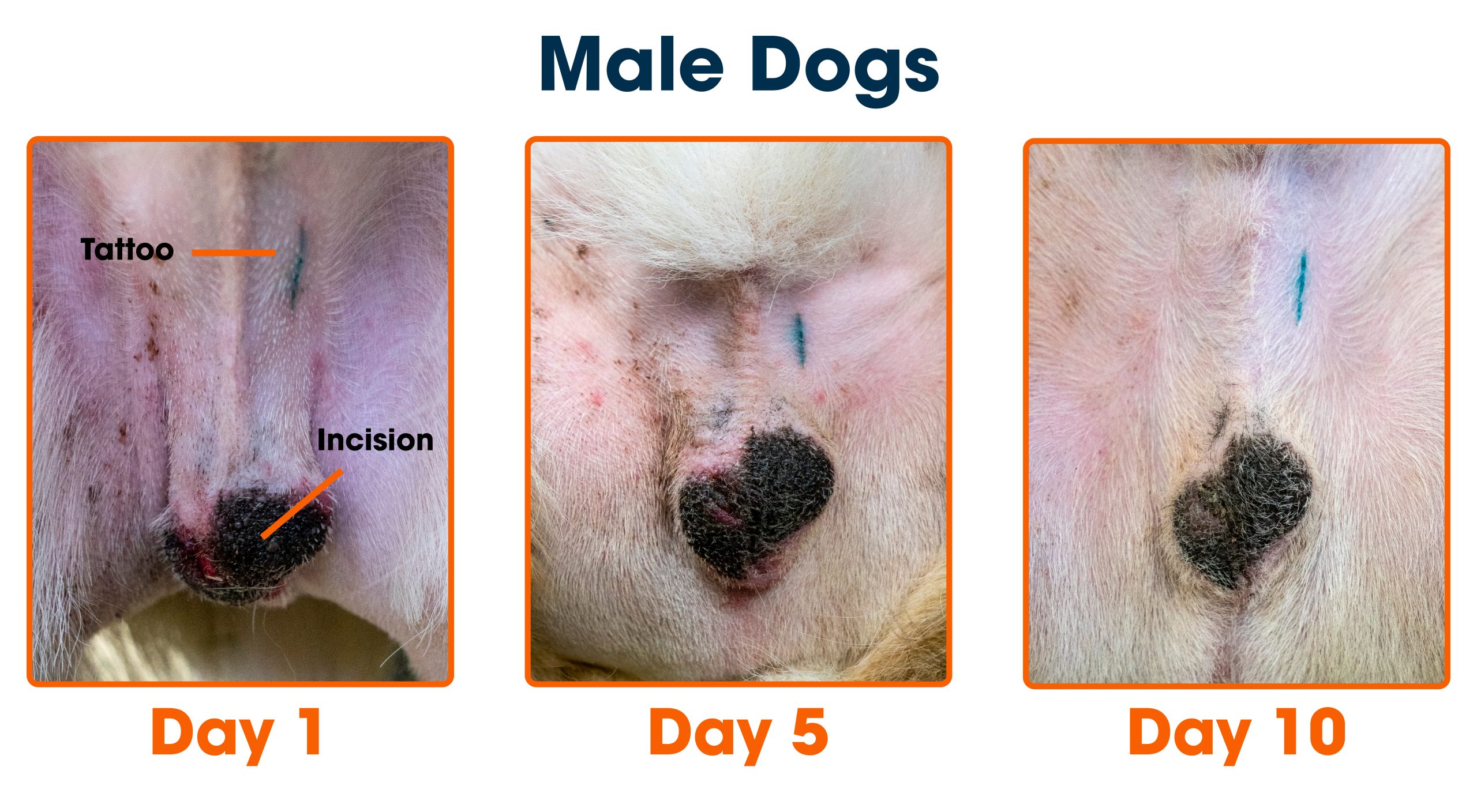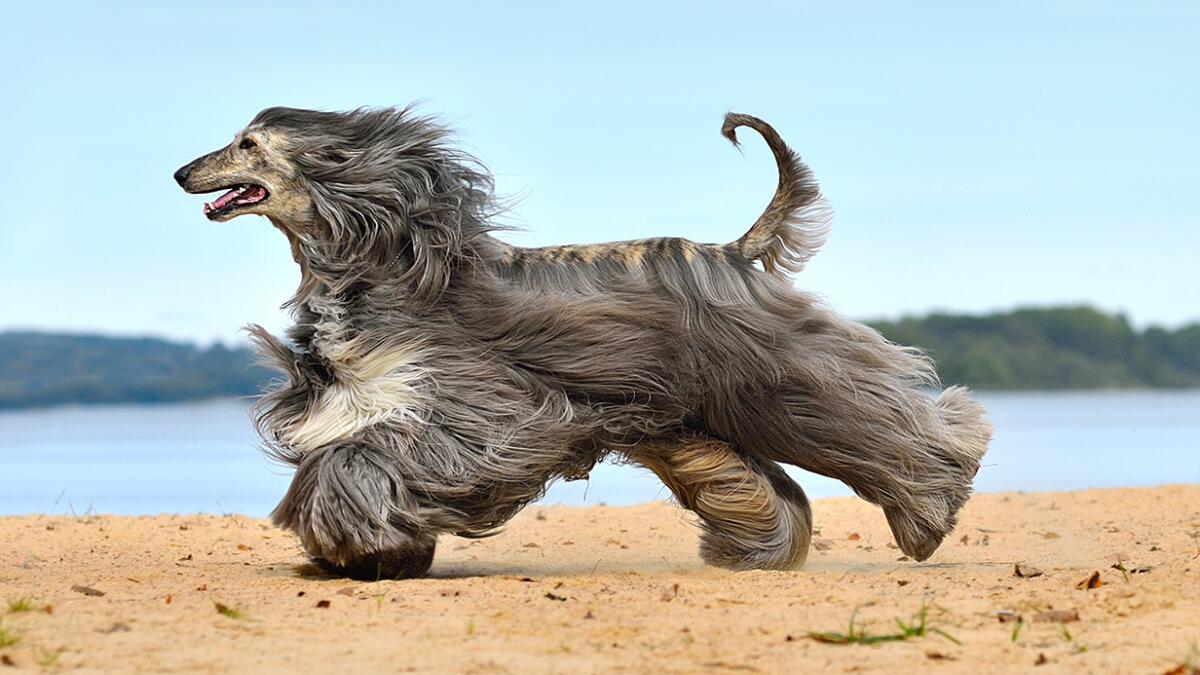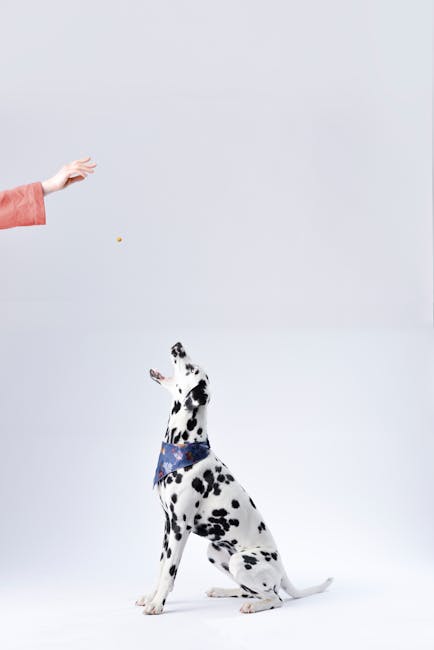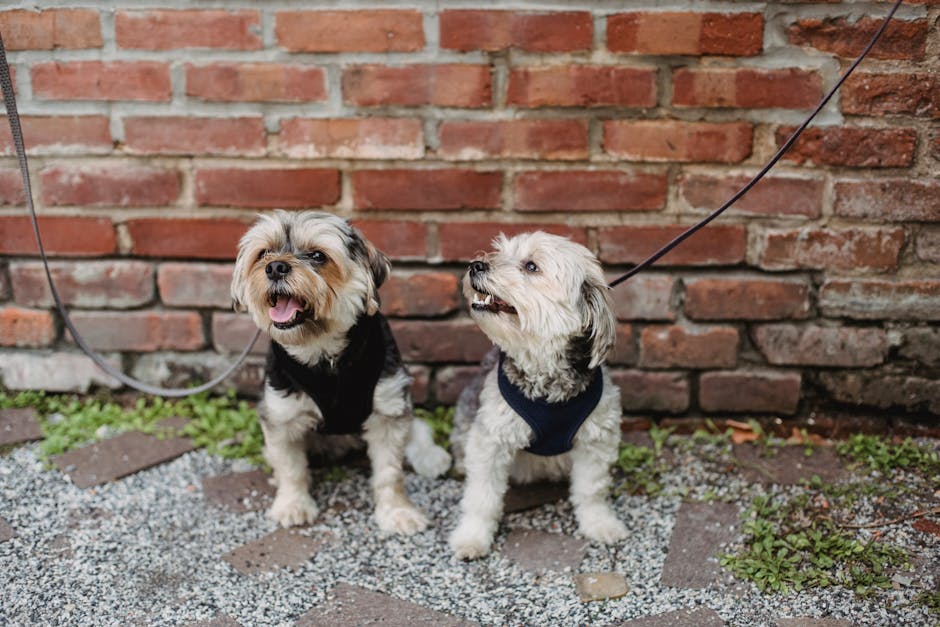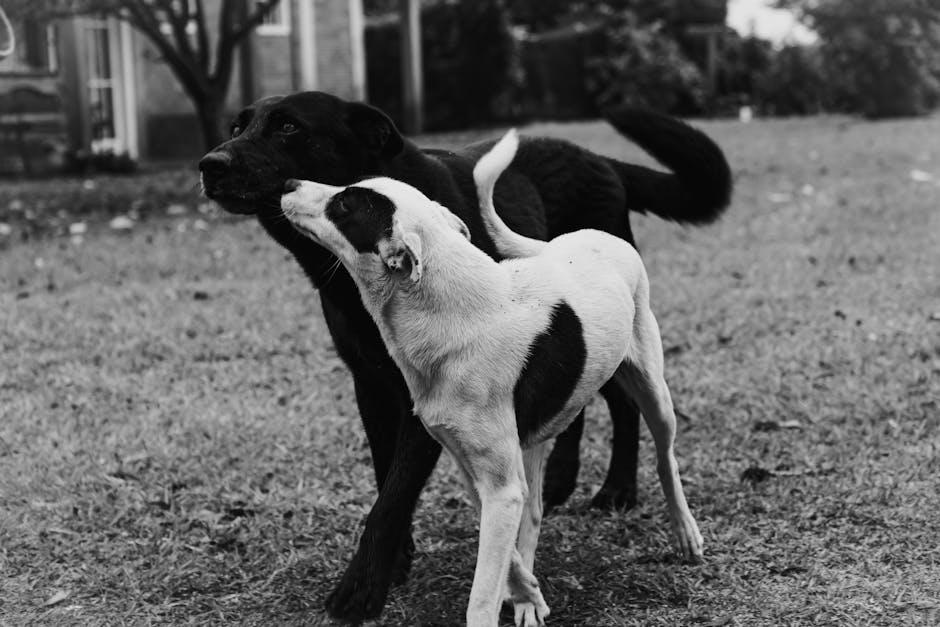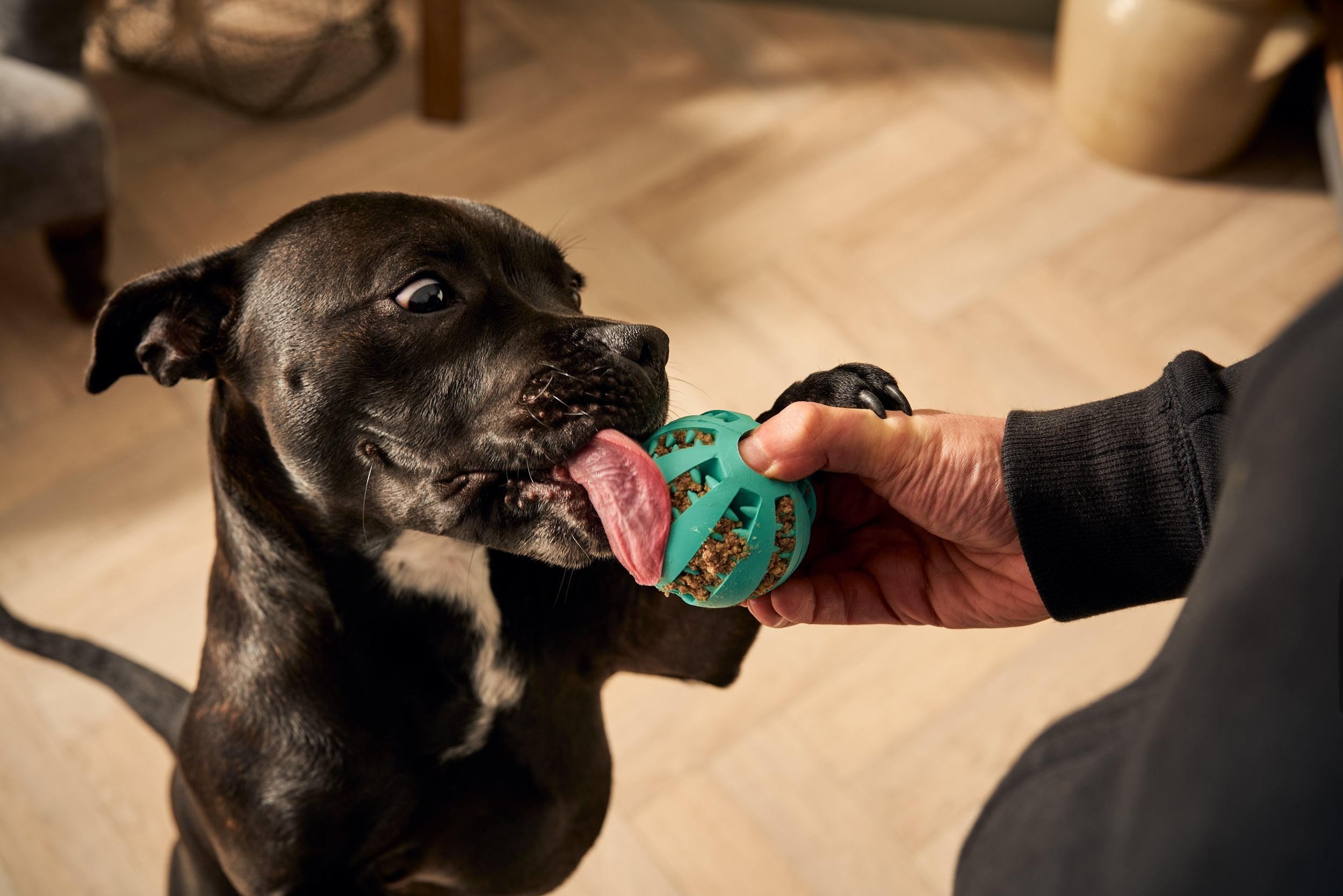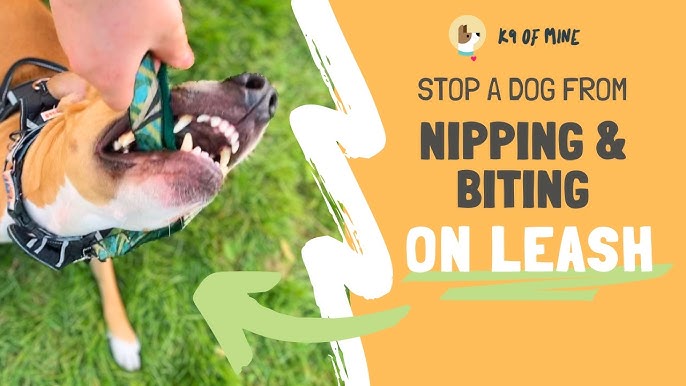Is your dog’s playful biting starting to wear on your patience? You’re not alone.
While those little nips might seem harmless at first, they can quickly become frustrating or even painful. Learning how to stop your dog from playful biting is key to building a stronger, happier bond. You’ll discover simple, effective tips that work—no complicated training needed.
Keep reading, and you’ll soon enjoy a calmer, more respectful furry friend who knows exactly how to show love without the nip.

Credit: pupford.com
Understanding Playful Biting In Dogs
Playful biting is a natural behavior for many dogs, especially puppies. It is how they explore the world and communicate with others. Dogs use their mouths to learn about their surroundings and interact with people and other animals.
Understanding why dogs bite during play helps you guide them gently. It prevents frustration and builds a better bond between you and your pet. Knowing the reasons behind playful biting makes training easier and more effective.
What Is Playful Biting?
Playful biting is a soft nibble or mouth touch during play. It is different from aggressive biting, which hurts and scares. Dogs use playful biting to invite others to join the fun or get attention.
Why Do Dogs Bite Playfully?
- Teething discomfort in puppies.
- Learning social skills with littermates.
- Expressing excitement or energy.
- Seeking attention from owners.
- Exploring objects and people.
Signs That Biting Is Playful, Not Aggressive
- Relaxed body and wagging tail.
- Gentle mouth pressure without pain.
- Quick release of the bite.
- Play bows or happy expressions.
- No growling or stiff posture.
Reasons Behind Playful Biting
Playful biting is a common behavior in dogs, especially young ones. It can be confusing and sometimes painful. Understanding why dogs bite during play helps address the behavior. Dogs use their mouths to communicate and explore. Their reasons for biting vary based on age, mood, and environment.
Teething And Oral Discomfort
Puppies bite because their teeth are growing. Teething causes pain and itchiness in their gums. Biting helps relieve this discomfort. Puppies chew on anything they find to soothe their mouths. This behavior usually decreases as their adult teeth come in.
Exploration And Curiosity
Dogs explore the world with their mouths. Biting is a way to learn about objects and people. Puppies especially use their mouths to understand new things. This playful behavior helps them discover textures and shapes. It is a natural part of their development.
Seeking Attention
Dogs sometimes bite to get your attention. They learn that biting makes you react. Even negative reactions can encourage biting. Dogs want to interact and play with you. Biting becomes a way to engage and connect during playtime.
Training Techniques To Prevent Biting
Training your dog to stop playful biting involves more than just telling them “no.” It requires consistent techniques that teach your dog which behaviors are acceptable and which are not. Here are some effective training techniques to help you guide your dog towards gentler play.
Positive Reinforcement
Rewarding your dog for good behavior works wonders. Whenever your dog plays without biting, immediately praise them or give a small treat. This helps your dog understand that calm play brings rewards.
Think about a time when your dog stopped biting just as you gave a treat. That moment teaches them faster than any scolding could. Are you using rewards enough to encourage the behavior you want?
Redirection Strategies
When your dog starts to bite, redirect their attention to a toy or chew item. This shifts their focus from your hand to an appropriate object. Keep toys handy during playtime to make redirection easy and quick.
For example, if your dog nips at your fingers, calmly offer a chew toy instead. Over time, your dog will learn that toys are for biting, not your hands. Could having a variety of toys make redirection smoother?
Consistency In Commands
Using the same commands every time helps your dog learn faster. Choose simple words like “No bite” or “Gentle,” and say them firmly but calmly. Make sure everyone interacting with your dog uses the same commands.
Consistency avoids confusing your dog and reinforces boundaries clearly. Have you noticed how mixed messages can slow your dog’s learning? Staying consistent builds trust and clarity between you and your dog.
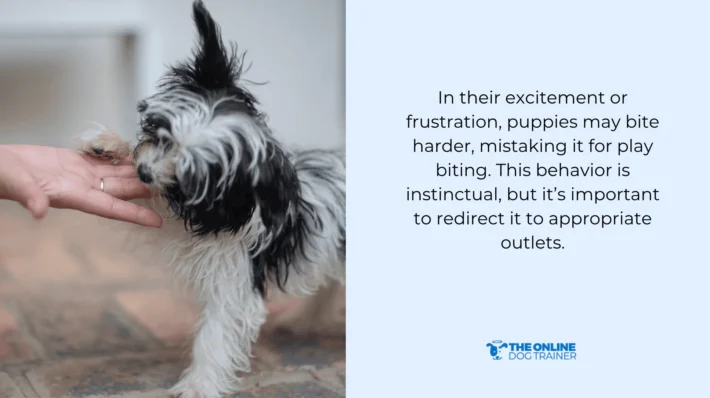
Credit: theonlinedogtrainer.com
Using Toys And Chewables
Using toys and chewables is a powerful way to reduce your dog’s playful biting. These items redirect their energy and satisfy their natural urge to chew. Offering the right toys can make a big difference in how your dog interacts with you during playtime.
Selecting Appropriate Toys
Choosing the right toys means considering your dog’s size, breed, and chewing strength. Durable rubber toys like KONGs work well for aggressive chewers, while softer plush toys suit gentler pups. Avoid toys that are too small or can break apart easily; safety should always come first.
Think about your dog’s preferences. Does your dog like squeaky toys or ones that can be stuffed with treats? Experimenting with different textures keeps them interested and less likely to bite your hands out of boredom.
Interactive Play Options
Interactive toys create a fun challenge and help your dog focus their energy on the game, not your fingers. Puzzle feeders and treat-dispensing toys keep their minds busy and reward them for calm behavior.
Try playing tug-of-war with a sturdy rope toy, but set clear rules: the game stops if teeth touch your skin. This teaches bite inhibition while still giving your dog a chance to engage in exciting play.
Have you noticed how your dog’s biting reduces when they have a favorite chew toy close by? Keeping toys accessible during active times can prevent unwanted nipping and build better habits over time.
Socialization And Environmental Adjustments
Socialization and environmental adjustments play a key role in stopping playful biting. Dogs learn how to behave by interacting with others and exploring their surroundings. A well-socialized dog understands limits and feels less anxious or excited. Adjusting the environment helps reduce triggers that cause biting.
Introducing Other Dogs
Meeting other dogs teaches your dog important social skills. Dogs learn bite control by playing gently with others. Start with calm, friendly dogs in a quiet area. Watch their body language carefully during introductions. Praise your dog for calm and gentle behavior. Avoid forcing interactions if your dog feels scared.
Regular playdates help your dog practice self-control. This reduces the chance of biting out of excitement. Socialization helps your dog understand when biting is not okay. It builds confidence and lowers stress in new situations.
Creating A Safe Space
Provide a quiet, cozy area for your dog to relax. This space helps your dog calm down after play or stress. Use soft bedding and favorite toys to make it inviting. A safe space lets your dog escape overwhelming stimuli. It prevents biting caused by frustration or overexcitement.
Keep this area consistent and free from distractions. Teach your dog that this spot is for rest and peace. Encourage your dog to use the space when feeling overwhelmed. Respect your dog’s need for downtime to support good behavior.

Credit: www.youtube.com
When To Seek Professional Help
Playful biting is common in dogs, but sometimes it can signal deeper issues. Knowing when to seek professional help ensures your safety and your dog’s well-being. Early intervention can prevent serious problems and improve behavior quickly.
Identifying Aggressive Behavior
Not all biting is playful. Signs of aggression include:
- Growling or snarling
- Showing teeth
- Stiff body posture
- Repeated, hard biting that breaks skin
- Sudden change in behavior
Recognizing these signs early can protect you and others from harm.
Consulting A Trainer Or Vet
Professional trainers and vets have the skills to help. Trainers teach proper bite inhibition and control techniques.
Veterinarians check for medical issues causing irritability or pain. Both experts provide personalized advice based on your dog’s needs.
Seek help if biting escalates or you feel unsafe managing it alone.
Frequently Asked Questions
How Can I Teach My Dog To Stop Playful Biting?
Use consistent commands like “No bite” and redirect to toys. Praise gentle play. Avoid roughhousing to reduce biting behavior.
Why Does My Dog Bite Playfully?
Dogs bite playfully to explore and communicate. Puppies learn bite inhibition through play. It’s natural but needs training.
What Are Effective Toys To Prevent Biting?
Chew toys and interactive toys distract dogs from biting hands. Durable rubber or rope toys work best for teething puppies.
When Should I Seek Professional Help For Biting?
If biting causes injury or persists despite training, consult a vet or trainer. Early intervention prevents aggression.
Conclusion
Stopping your dog’s playful biting takes patience and clear rules. Stay calm and consistent with training. Give your dog safe toys to chew on instead. Praise good behavior and gently ignore biting. Over time, your dog will learn better ways to play.
This helps build a strong, happy bond between you. Keep practicing daily for best results. Play should be fun and safe for both of you.

